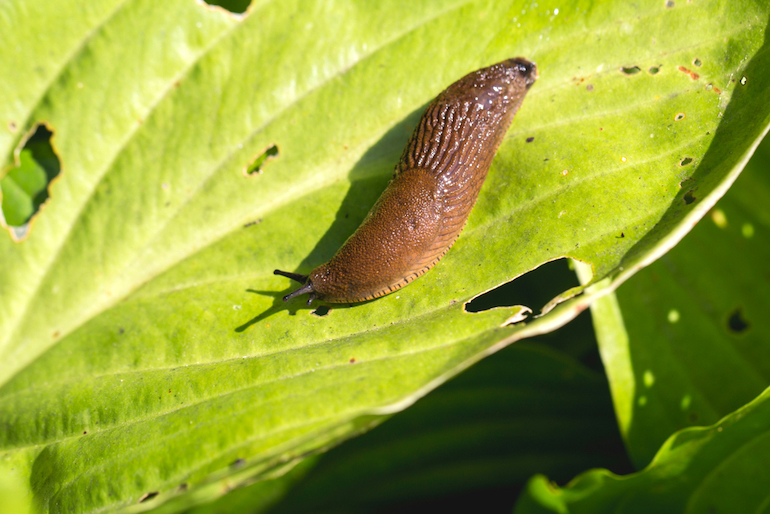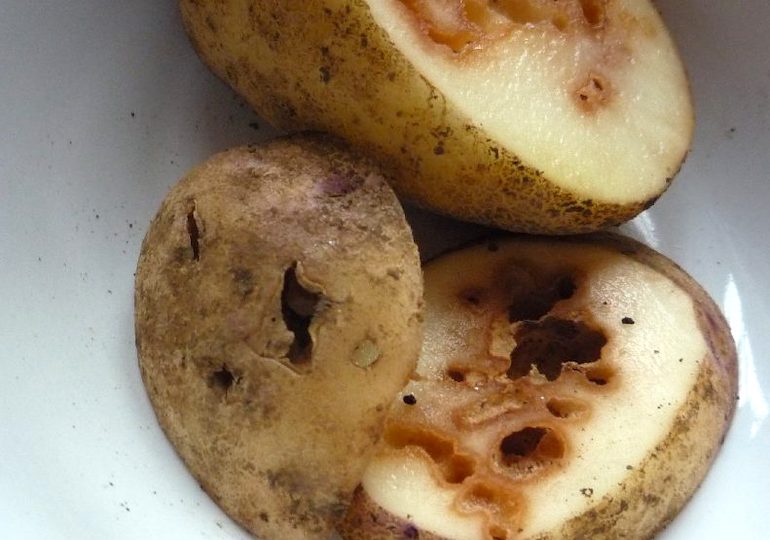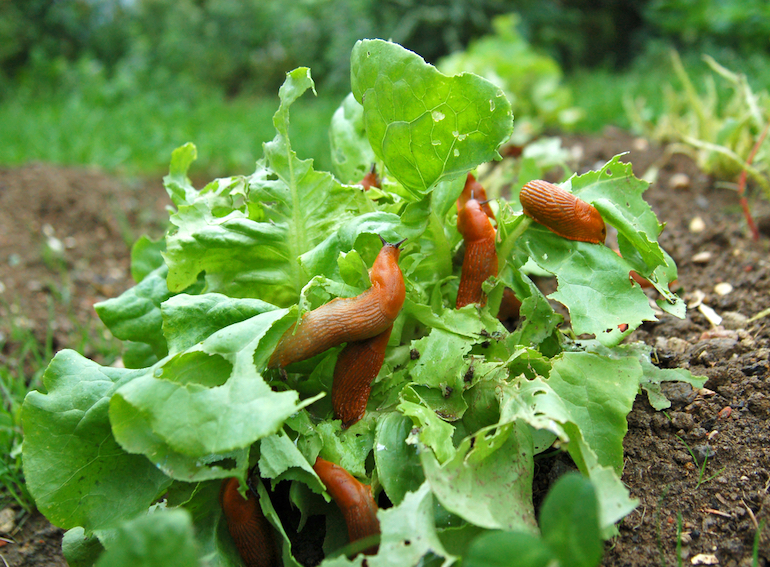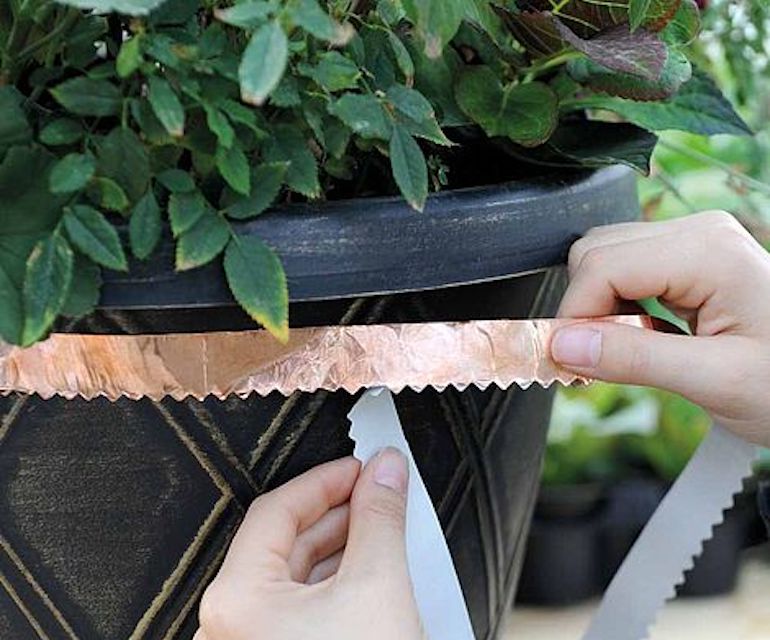Garden pests - Slugs

Slugs are a common pest in most gardens year-round
Image: Marija Stepanovic/Shutterstock
Slimy and persistent, slugs can cause major damage to gardens if they’re not controlled properly. Slugs are a year-round pest but do the most damage to new spring growth.
What are slugs?
Slugs are shell-less gastropods - a type of mollusc. They’re similar to snails (without the shell), in that they have a soft body, and move along the ground with a muscular ‘foot’, lubricated by mucus.
Like snails, they have rasping tongues called radulas, which have microscopic teeth-like structures. These radulas rip food into tiny pieces and cause a lot of damage to plants and crops.
Slugs like wet, damp weather and prefer temperatures over 5℃ - they’ll stay underground on cold, dry days.
They lay clusters of watery, gelatinous eggs in damp crevices. Slugs take a year to mature into adults and then live for a further two years.
How to recognise slug damage

Even buried potatoes are at risk from slug damage
Image: Garden Focused
Slugs tend to feed at night. Like snails, slugs leave a couple of tell-tale signs behind:
- Holes - slugs leave irregular holes in leaves. They can also devour young seedlings.
- Slime trails - slugs can leave silvery trails on leaves, stems and surfaces as they use mucus to help their movement.
However, unlike snails, some species of slug will live in the soil and tunnel through bulbs and potatoes, leaving holes and destroying whole crops under the soil.
Which plants do slugs eat?

Your favourite salad plants are most at risk from slug damage
Image: Dieter Hawlan/Shutterstock
Slugs eat a wide range of vegetables and ornamental plants. They will eat leaves, stems, roots and tubers, but do the most damage to seedlings and soft growth. Potatoes, peas, lettuce and celery are particularly at risk.
Slugs will also eat decaying organic matter - including dead slugs.
How can I control slugs?

Use copper slug tape to protect your pots from slugs.
Image: Copper Slug Tape from Thompson & Morgan
Slugs are so widespread that eradicating them isn’t realistic. The best you can do is control your slug population and protect the most susceptible plants. Here’s how to do that:
- Trap them - sink traps into the soil around vulnerable plants and catch them as they feed on your bait. You can buy specially baited (poison free) slug traps, or make your own using a glass or bowl of beer. You’ll need to check traps regularly as decomposing slug will inevitably attract more slugs into your garden!
- Put slugs off - Some gardeners sprinkle textures that slugs don’t like crossing around plants they want to protect from slugs. Popular deterrents include sharp grit, egg shell and natural wool pellets. Used coffee grounds are another favourite - slugs hate caffeine and find it poisonous in strong enough doses.
- Use copper tape - Protect pot plants with copper slug tape. Slugs don’t like crossing copper as it gives them a mild static charge.
- Pick them off plants after dark - Head out into the garden at night with a torch and you’ll be able to pick off any slugs that are attacking plants above ground. You can then dispose of them at your will.
- Take advantage of natural predators - Soft-bodied slugs have lots of natural predators that you can encourage into the garden. Birds, hedgehogs, frogs and toads all enjoy eating these squishy pests.
- Use nematodes - Introduce nematodes into affected soil to control slugs. Unlike snails, slugs often go underground and can be controlled by exposure to these soil-dwelling parasites, which infect them with bacteria that’s fatal to slugs. Nematodes will do no damage to any other type of animal.
- Lift potatoes quickly - The longer potato crops stay in the ground, the more they are susceptible to slug damage. Lift tubers as soon as they have matured in badly affected soils. Manure and organic composts can encourage slugs, so avoid these if you have a slug problem.
- Sprinkle slug pellets - Don’t let past experience put you off. Modern varieties of slug pellets are now free from the harsh chemicals that gave them a bad name. You can choose brands that are certified organic friendly and are suitable for use around edible crops. You’ll still have to be careful if you share your garden with pets and children.







